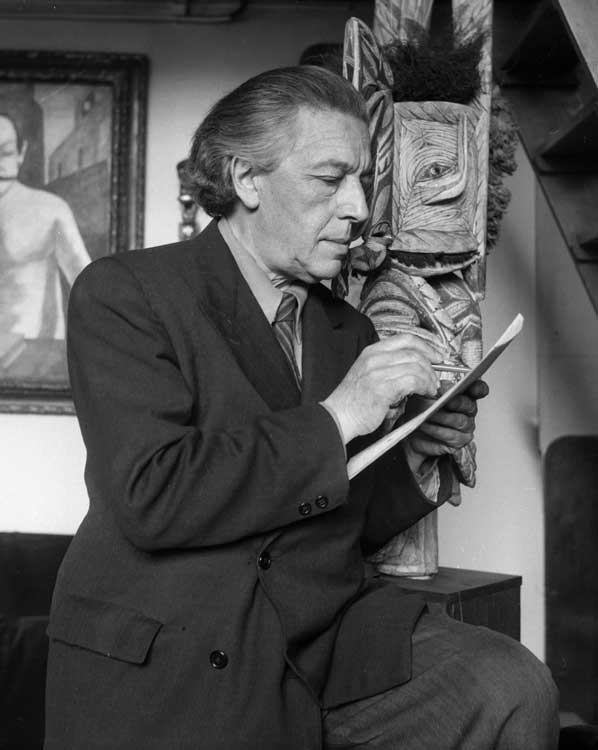Apostle of surrealism has last laugh over €1m auction

André Breton, the apostle of surrealism, would probably have been amused rather than annoyed. Art historians and critics are puzzled and angry.
The only known complete manuscript of Breton's Surrealist Manifesto of 1924 – one of the most influential documents in modern art – will be sold by Sotheby's in Paris tomorrow. To the annoyance of art critics, the document is to be sold separately from eight other Breton manuscripts which are associated with the first published version of the manifesto.
Breton (1896-1966) preached, and practised, an "instant" approach to art and thought which rejected the conventional idea of enduring value. He might well have rejected as an absurdity the idea of paying an estimated €500,000 (£400,000) for his hand-written and illustrated 21-page argument for "uncontrolled" art.
Art historians argue that the manifesto, which justified or influenced the work of artists such as Pablo Picasso, René Magritte, Salvador Dali and Marcel Duchamps, should be sold as a single lot with other Breton writings of 1924. The Sotheby's auction house says that every effort will be made to permit a single bid for all nine manuscripts. Together, they could fetch at least €1m.
The documents are being sold by the family of Breton's first wife, Simone Collinet, who died in 1980. The Breton works – offered for public sale for the first time – are the centrepiece of an auction which also includes manuscripts by other celebrated French writers, including Gustave Flaubert, Paul Verlaine, Simone de Beauvoir and André Gide.
Breton, born to a relatively poor family in Normandy, became the spiritual leader and theoretician of the surrealist art movement which sprang up after the 1914-18 war.
In his "manifesto" he defined surrealism as follows: "Surrealism, noun, masculine: a form of psychic automatism, in which you attempt to express, in words, in writing, or in any other manner, the real processes of thought. A transcription of thoughts without any form of control by reasoning and without any reference to aesthetic or moral considerations."
His manifesto was published in 1924, in the same volume as other pieces of Breton writing, including a collection of 32 instant poems called "Poisson soluble" or "soluble fish". The auction also includes seven other exercise books containing doodles, rough drafts and other examples of what Breton called "automatic writing": an attempt to transcribe thoughts and fantasies directly on to the page without pause or reflection.
To the annoyance of some Breton scholars, the nine manuscripts forming the writings of 1924 are to be offered for auction separately. The owners and Sotheby's argue that they have always been considered as separate pieces.
The auction will be conducted by Cyrille Cohen, vice-president of Sotheby's France, who organised a sale of other Breton possessions and memorabilia in 2003. This auction was also criticised at the time by Breton followers and scholars who believed that the collection should have been kept together – preferably for public display. Some Breton followers argued, however, that his entire philosophy was opposed to the "museum-ification" of art. A "Breton museum" would, therefore, have been a contradiction in terms.
History of a manifesto
*Surrealism originated from Dadaism, an art movement that rejected traditional conventions of Western culture. However, the artists behind surrealism wanted a more positive approach to the horrors of the world. Alongside Breton's Surrealist Manifesto and the group's periodic publication, La Révolution Surréaliste, the members opened the Paris-based Bureau for Surrealist Research in 1924. Talks were held with the aim of gathering "all the information possible related to forms that might express the unconscious activity of the mind".
Join our commenting forum
Join thought-provoking conversations, follow other Independent readers and see their replies
Comments
Bookmark popover
Removed from bookmarks